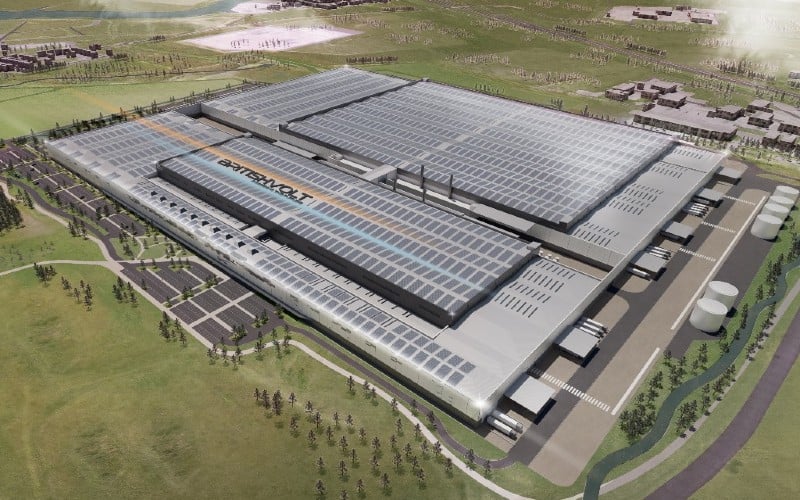The Britishvolt gigafactory in Blyth has staved off administration – for now – after it secured short-term funding from a mystery investor and its 300 staff agreed to take a big cut in pay.
The project, championed by the government as a key pillar in its ‘levelling up’ project just four months ago, is teetering on the brink of collapse after ministers refused to advance £30 million of promised funding to save it.
The £3.8 billion Northumberland project was planned to create up to 8,000 jobs and build 300,000 batteries for electric vehicles a year.
The new funding will see Britishvolt continue for ‘a few weeks’. Its executive team will not be paid for November, while directors will receive 25% of their pay and the majority of the remaining workforce will receive 50%.
“We have now secured the necessary near-term investment that we believe enables us to bridge over the coming weeks to a more secure funding position for the future,” a company spokesperson said.
“To further reduce our near-term costs, our dedicated employee team has also voluntarily agreed to a temporary salary reduction for the month of November.”
Jaguar Land Rover owner Tata Group is among those thought to be in talks with the firm.
“While the weakening economic situation is negatively impacting much business investment at present, at Britishvolt we are continuing to pursue positive ongoing discussions with potential investors,” the spokesperson continued. “In addition, we have also received promising approaches from several more international investors in the past few days.”
Britishvolt has struck deals with several companies to supply components for batteries, as well as battery design contracts with Aston Martin and Lotus.
The government originally announced backing for the project in January 2022. After providing Britishvolt with a final grant offer through its Automotive Transformation Fund in July, it said the support would help to unlock a significant amount of backing from private investors.
The government had committed a total of £100m for the project. However the private funding has not materialised, leading to Britishvolt to ask for an advance of a third of the total earlier than planned.
Ian Lavery, the Labour MP for Wansbeck, where the site is based, told the BBC that he had spoken to the chairman of Britishvolt on Monday.
“The chairman informs me that the government have replied overnight [with] Grant Shapps the new Business Secretary, saying that they are not prepared to do that (advance £30m) – and as a consequence, it is very likely that Britishvolt will go into administration,” said Lavery.
“It is fairly and squarely at the door of the government for basically not agreeing to bring monies forward which will ensure that this project will continue. It is absolutely outrageous – what happened to levelling up?”
In July, then Business Secretary Kwasi Kwarteng – since installed then sacked as Chancellor amid the chaos of Liz Truss’s brief premiership – said: “The Blyth gigafactory will turbocharge our plans to embed a globally competitive electric vehicle supply chain in the UK and it is fantastic to see how the project is progressing.
“The vast site will ensure Britain can fully capture the benefits of the booming global electric vehicle market. The well-paid jobs and growth it will generate for the North East of England will be transformational and are exactly the reason we are investing to make the UK the best place in the world for automotive manufacturing.”
In August, Britishvolt founder and CEO Orral Nadjari stepped down from the gigafactory project following reports that it was already stalling.


